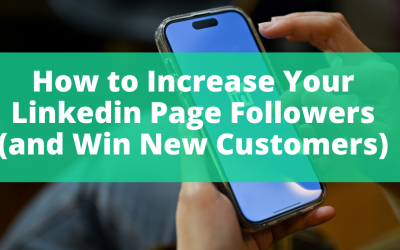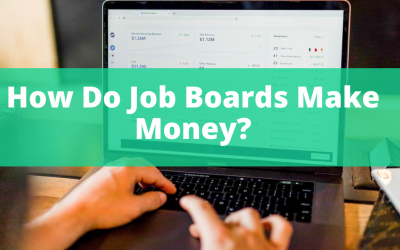So you have a product or a service that you want to launch online and your not sure where to start?
Taking your business online means you can reach a far larger audience of customers than you could via any other means. After all, how else could you make yourself accessible to a national or global audience than via a website?
It gives potential customers the opportunity to discover what you do, be persuaded that you are the right business to solve their problem, and to place an enquiry or order…from anywhere in the world.
Getting a functioning e-commerce website is just the first important step. You’ll also need a plan for getting visitors to your website.
Here are the first steps you need to take with your website:
1. Buy a domain
What is a domain name?
A domain is essentially a website address. It’s where people to go to find your website. Ideally your domain name will be reflective of your brand name. For example Amazon is Amazon.com, BBC is bbb.co.uk etc. All domains will start with www which stands for world wide web. Some companies will use an abbreviation, for example British airways is ba.com.
Where do I buy a domain?
Buying a domain name is actually very simple. The problem you are most likely to face is that whatever you choose is likely to already be registered by someone, especially if it’s a ‘dot com’
To buy a domain you can simply go to a company like www.1and1.com or www.hover.com where you will be able to check availability and prices. Domains can cost as little as £1 per year to register.
Do I need a .com domain?
.com domains are generally the best option as they are what people tend to associate with a website. As a result, you may find that your first pick of a .com is already registered by someone else.
Due to this, there is also a huge popularity amongst other second tier domains. For example .co.uk popular with UK companies, and there are a growing number of alternative options such as .info, .online, .london etc.
Perhaps the best advice here is to choose a domain closely aligned with your company name (brand) and easy to remember.
2. Decide if you need hosting
What is web hosting?
In the same way that your domain acts as a kind of postal address to tell people where your ‘house’ is. Your hosting is the foundations onto which you will build your house. It’s essentially online ‘space’ where your website is stored, including all of the text and images that go with it. The specification of your hosting package will depend on how big your website is and how fast you want it to be.
Do I need hosting?
When you buy your domain, it’s likely that the company will also offer you hosting and possibly a website builder. It’s important that before you commit to this, you think carefully about what you want your website to do and what the most appropriate option may be. You should read on to the next section for more information about this as there are a number of options that include hosting as part of a larger package.
3. Setup your website
What kind of website do I need?
There are a plethora of options here to suit all budgets. You need to think about exactly what it is that you want. Do you just want somewhere to explain a bit about your company? Are you looking for a more complex multi-page website with images? Or are you looking for a fully fledged e-commerce solution that will enable you to take payments and process orders online?
A simple landing page
If you are looking for a simple 1 page website then you may try an option like www.strikingly.com which comes with hosting and an easy to use editing tool. It’s perfect if you just need a page where you can explain a bit about your company and what you do.
A multi page website
There are a few options here. If you are wanting to keep costs down and are happy to do some of the work yourself, there are a few options out there:
Both of these options come with low cost plans and give you some simple tools to help build your website including forms that you can use to capture payments.
Full e-commerce functionality
If you are planning on making sales online, you could consider an option like shopify.com which is simple to use and can get you off the ground quickly. Other options include wordpress with an appropriate e-commerce plugin but you may need some help from a wordpress expert.
WordPress – the flexible alternative
WordPress is a hugely popular option which is capable all of the above but will need some customisations if you want e-commerce functionality.
WordPress is especially powerful in helping your pages rank naturally (organically via SEO). There are lots of free guides on how to build with and use wordpress, and you can use a theme like Divi from elegantthemes.com or elementor.com which offers powerful ‘what you see is what you get’ (WYSIWYG) functionality to build beautiful pages. They also have excellent online support.
There are also a lot of wordpress experts you can call on for help using a website like www.peopleperhour.com
4. How do I design a professional looking website?
Most entrepreneurs are not web designers. ‘Build it yourself’ tools can go some way in getting your website up and running, but what if your after something more professional? There are a few options here:
Hire a web designer or agency
Web designers live and breath websites so they can be a good option if you want to get things going quickly and have some budget.
For a good web designer to work on a relatively basic website, you will likely need a budget of at least £1,500. If you don’t have a logo and need you brand created from scratch, it will cost more.
Hire a designer on 99designs
This is a great option if you are looking for a completely new brand/logo as well as new site design. You can write a brief and view proposed designs from a number of designers selecting the one you like the most and awarding them a budget. This can cost as little as £695.
You can then find someone on 99designs to help you build the website, or use the designs to build the website yourself using some of the tools mentioned above.
5. What else do I need?
There are a few other things you should do to get your website ready for launch.
Google Analytics
Google Analytics is a free tool that will help you track visits to your website. It will give you essential information such as:
- How many people are visiting your site
- Which pages are they visiting
- How are they getting your website
- Which countries are they coming from
- How much time are they spending on the site
This is just a small taster of the info you will get from Google Analytics. It’s a free tool and probably the most powerful on the market.
It’s also very easy to setup so please make sure you have it in your website from the moment you launch…no excuses!
Google Search Console
Google search console is another free tool from Google. It will monitor your website for any issues and alert you when something is wrong. It also gathers extremely valuable information about the kinds of keywords people are using to get to your website. This information is crucial if you plan to get free traffic from search engines like Google.
Again do not let your site go live without it!
With these in place, you need to figure out how to get customers to your website.
Take a look at out post on 8 key strategies to drive online sales.



